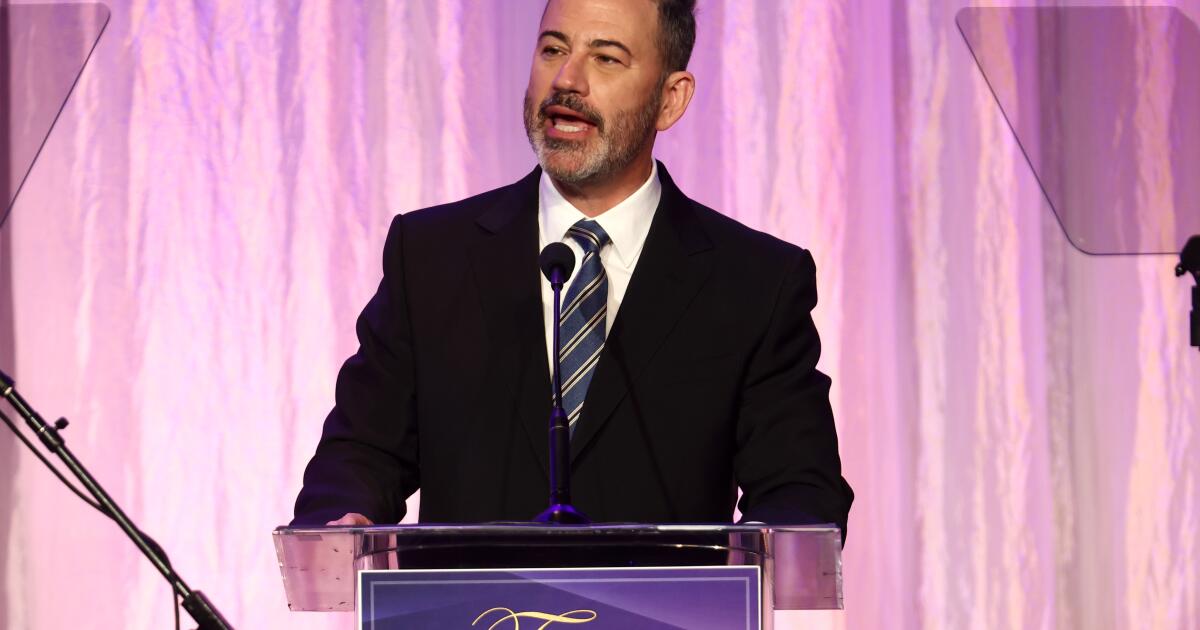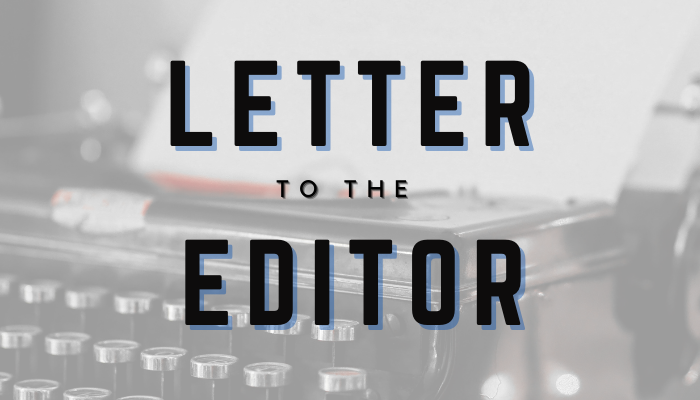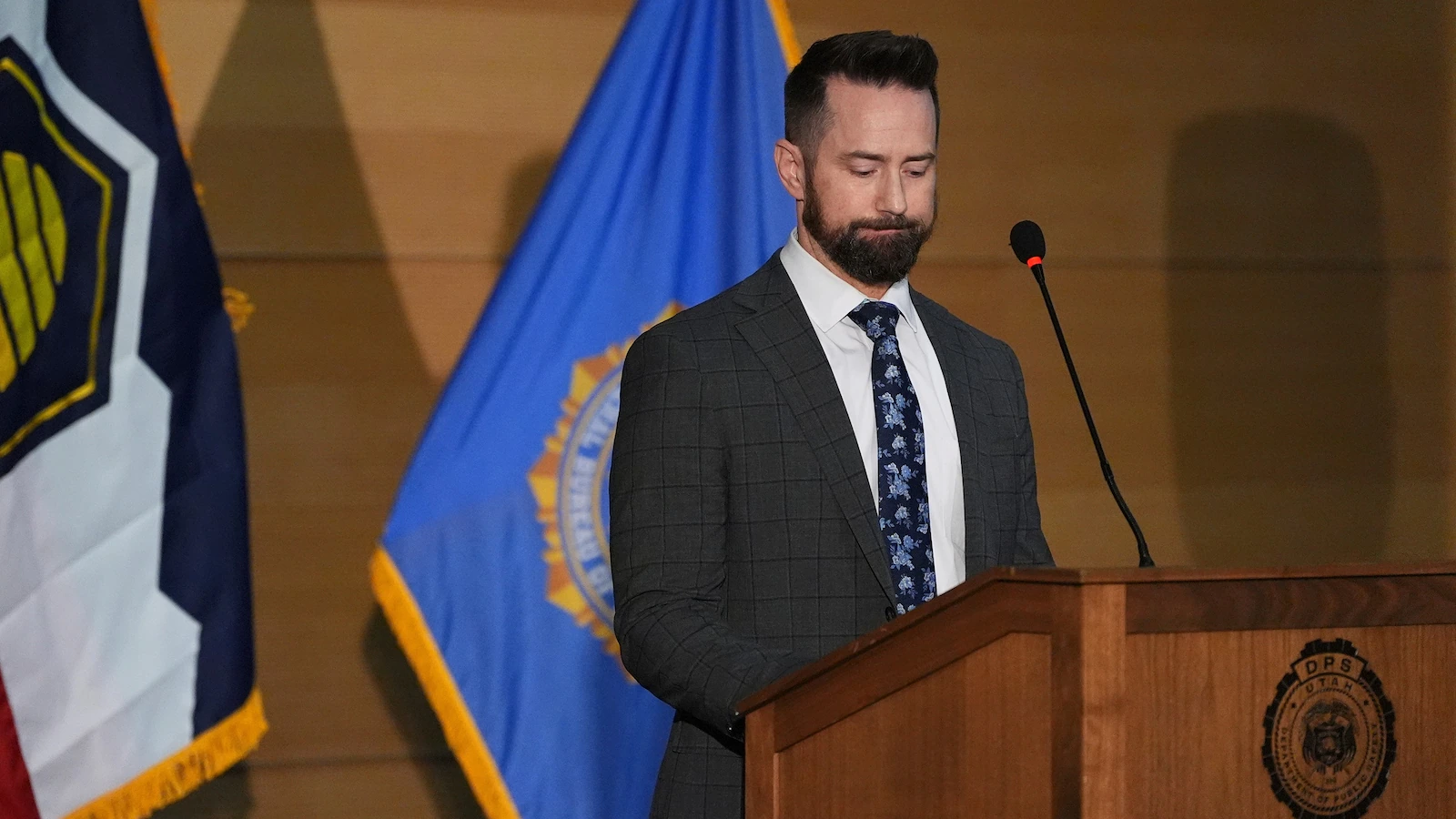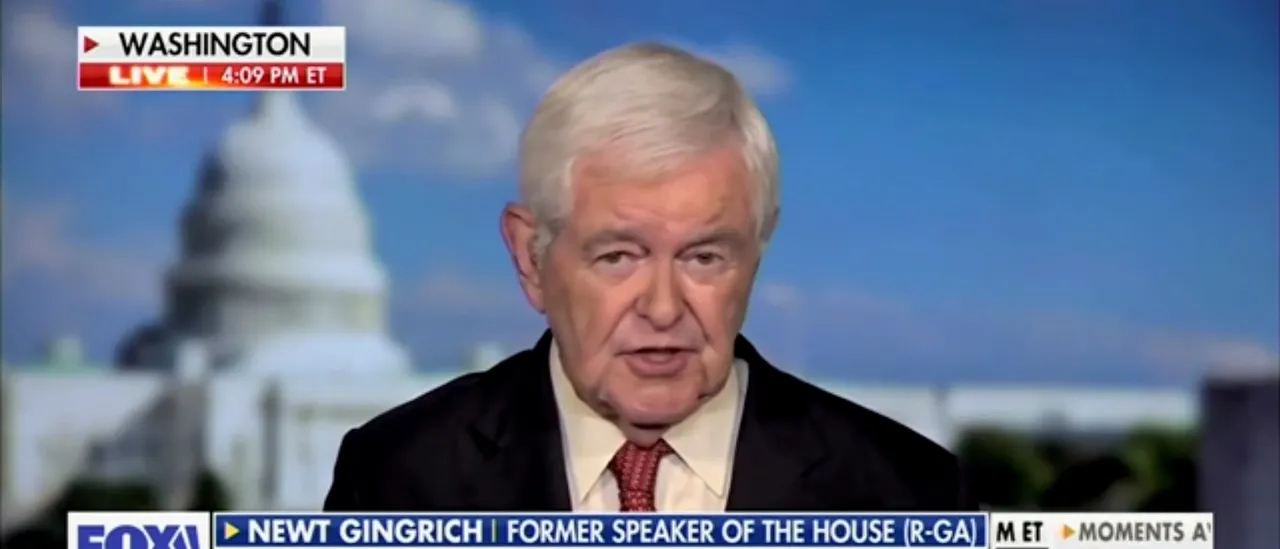
The abrupt suspension of comedian Jimmy Kimmel’s late-night show on ABC might seem like the least of our worries amid the shuttering of government agencies, the collapse of congressional checks on executive power and bands of ICE agents detaining people on the basis of race or language. But humor matters.
While the news media is sometimes referred to as the fourth estate, alongside the executive, legislative and judicial branches of government, few think of stand-up comedy as a pillar of democracy. But jokes allow a society to mock itself, spotlight uncomfortable truths, bridge differences and say what cannot otherwise be said. Humor is a crucial bulwark of a free society. To play that role, comedians need the leeway to embarrass, provoke and take risks, sometimes crossing the line into offense.
In the wake of Kimmel’s suspension it is hard to imagine any mass market humorist poking fun with abandon that biting satire demands. One of the most powerful salves for people under stress, and a particular lifeline during the Trump era, is the ability to laugh at the ridiculous or unfathomable. Lowering a curtain on comedy will not only dim one of our country’s most treasured cultural forms, but also accelerate the dark turn of American democracy.
Dating back to pre-revolutionary times, political satire has been a mainstay of American culture. Rebellious colonists skewered British taxation policies, military blunders and parliamentary pomposities through plays, songs and cartoons that rallied others to the cause of independence and made mass mobilization fun. Benjamin Franklin’s 1773 “Rules by Which a Great Empire May Be Reduced to a Small One” used irony to lampoon British policy, undermining authority while avoiding direct flouting of the era’s harsh sedition laws. The juxtaposition of a lighthearted format with a pointed commentary has marked America’s comedic tradition ever since, encompassing literary humorists such as Mark Twain and Edgar Allan Poe, satirical magazines like Puck and MAD, political cartooning, vaudeville, radio satire, stand-up and the late-night juggernauts of variety shows, talk shows and, since 1975, “Saturday Night Live.”
While our 1st Amendment tradition has mostly protected satire over the years, it hasn’t prevented heavy-handed politicians from occasionally trying to silence their comedic critics. When Thomas Nast, known as the father of American political cartooning, took on New York City’s Boss Tweed and his Tammany Hall political machine in the 1870s, Tweed reportedly said: “Let’s stop those damned pictures. I don’t care so much what the papers write about me — my constituents can’t read, but damn it, they can see pictures.” But Nast kept up a furious pace of cartooning, hastening Tweed’s downfall on corruption charges.
Charlie Chaplin’s satire of capitalism and authoritarianism in films including “Modern Times” and “The Great Dictator,” alongside his outspoken politics and alleged communist ties, drew FBI surveillance. In 1952 his re-entry permit to the U.S. was revoked, effectively exiling him for nearly 20 years.
Around the world, autocrats have recognized the power of comedians to puncture preferred narratives, undermine authority and stoke dissent. The Nazi regime’s Reichskulturkammer, or chamber of culture, tightly censored cabaret and comedy. Cabaret performer Werner Finck opened a club in 1929 and dared Gestapo members in the audience to write down his every word. Propaganda Minister Joseph Goebbels ordered the venue shuttered in 1935 and sent Finck and his colleagues to a six-week stint in a concentration camp. In the Soviet Union, jokes about Joseph Stalin or the Communist Party were treated as serious crimes against the state, warranting time in the gulag.
In the age of international television and social media the potency, and the perceived threat, of comedy has only grown. Ukrainian President Volodymyr Zelensky built national stature as a television satirist playing a fictional president. His predecessor’s government, which did all it could to derail its political opponents, did not see Zelensky coming; until it happened, few imagined his leap from sound stage to presidential podium. In 2013 the Cairo government issued an arrest warrant for television comic Bassem Youssef, known as the Jon Stewart of Egypt, for jokes about President Mohamed Morsi and Islam. He was hounded into exile and has lived in the U.S. for the last decade.
In an increasingly polarized America, the place of comedy has been under attack from all sides. A decade ago Jerry Seinfeld said he would no longer do shows on college campuses because of ferocious politically correct backlash against his jokes. In 2019 the New York Times announced it would no longer publish political cartoons after apologizing for an antisemitic caricature of Israeli Prime Minister Benjamin Netanyahu. This year the White House Correspondents’ Dinner canceled a planned appearance by comedian Amber Ruffin, the latest in a series of kerfuffles over controversial emcees of that event. The rising cost of reprisals, in the form of offended constituencies, online outrage and direct threats, is increasingly rendering humor too hot to handle.
The public threats issued by Federal Communications Commission Chair Brendan Carr against Kimmel and ABC, based upon comments by the comedian that were neither incendiary nor menacing, marks a sharp escalation in the battle against humor. The immediate capitulation of Disney, one of America’s largest and most revered corporations, is a shocking sign of just how quickly private, independent institutions are melting down under heated threat by a vindictive administration. If a comedian as mainstream as Jimmy Kimmel is not safe from silencing, it is hard to imagine who is.
In helping audiences understand what is happening around them and reckon with their fears, comedy is both a collective coping mechanism and a catalyst for unfettered, clear-eyed thought. Autocrats around the world understand this.



